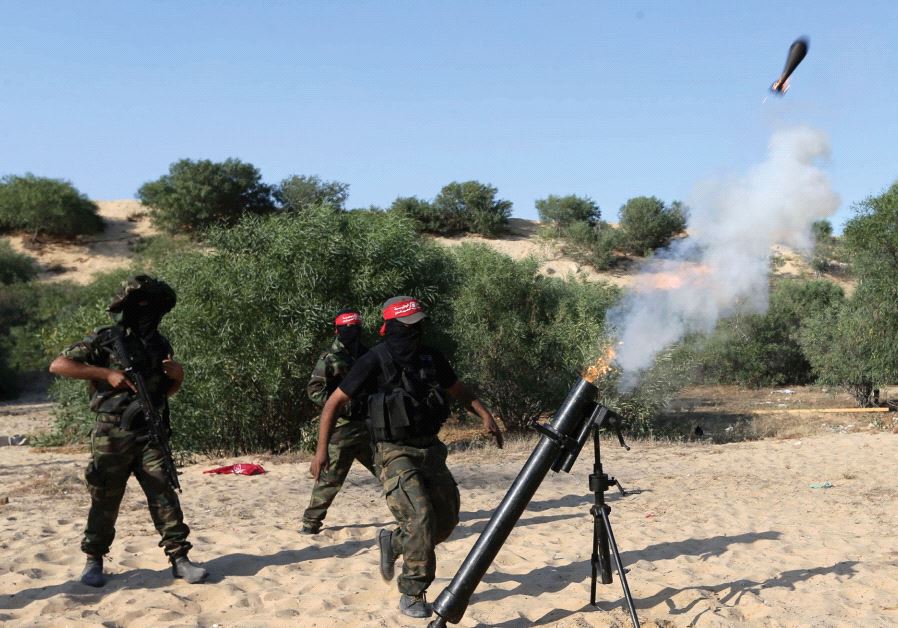Fmr. defense minister: Mortar fire shows more 'Iran involvement' in Gaza
Israel says mortars fired towards southern Israel were supplied by Iran to terror groups in the Hamas-run enclave.
 PALESTINIANS FIRE a mortar shell in the southern Gaza Strip in 2015Updated:
PALESTINIANS FIRE a mortar shell in the southern Gaza Strip in 2015Updated: